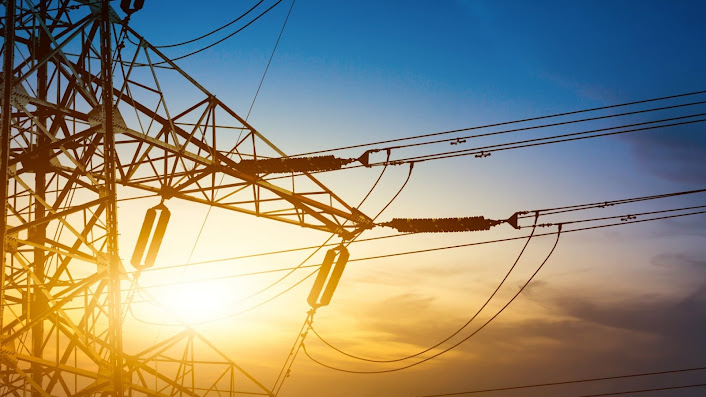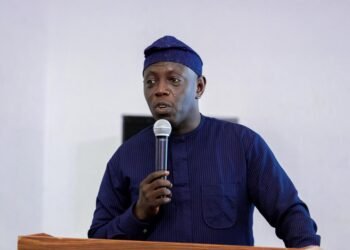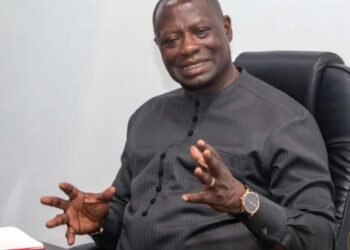The Electricity Company of Ghana (ECG) and the Northern Electricity Distribution Company (NEDCo) have jointly proposed the introduction of a dedicated tariff to finance the provision and maintenance of street lighting nationwide, a move that could soon impact the electricity bills of households and businesses.
The proposal comes as both state-owned utilities are already pushing for significant tariff increases in their submissions to the Public Utilities Regulatory Commission (PURC), raising concerns about affordability for consumers at a time of economic strain.
ECG Defends 224% Tariff Hike
The ECG is requesting a 224 percent adjustment to its Distribution Service Charge (DST1) for the 2025–2029 tariff period. If approved, the charge would rise from 19.0875 pesewas per kilowatt-hour to 61.8028 pesewas per kilowatt-hour.
According to ECG, the drastic increase is necessary to restore its financial viability, sustain distribution services, and allow full recovery of investment costs in infrastructure.
Moses Okley, General Manager of Financial Planning at ECG, defended the proposal at a public hearing in Accra on Tuesday, September 9, describing it as critical to maintaining reliable electricity delivery across the country. “We plan to deploy 3 million meters in the next three years,” Okley said.

“In terms of financial growth, sales are projected to increase by 18 percent with an annual growth rate of 8 percent. One key improvement the company has targeted is an increase in revenue collection.
“In 2024, revenue collection stood at 87 percent. We plan to increase this by 2 percent year-on-year over the next five years.”
Moses Okley, General Manager of Financial Planning at ECG
Finally, ECG proposed that the DST1 be increased from 19 pesewas to 61 pesewas, representing a 224 percent increase.
He emphasised that without the tariff adjustments, ECG’s operations would remain unsustainable, compromising the stability of Ghana’s power distribution network.
NEDCo Seeks 171% Adjustment, Scrapping of Lifeline Tariff

NEDCo, which serves the northern parts of Ghana, is also seeking a steep tariff hike of 171 percent to keep pace with what it describes as unsustainable operational costs.
Beyond its request for higher tariffs, the company has controversially called for the removal of the lifeline tariff bracket, which currently cushions low-income households by offering them electricity at subsidised rates.
Hashim Iddrisu, NEDCo’s Director in Charge of Commercial, explained that the existing arrangement was no longer viable given the company’s financial realities. “We’re proposing that the current lifeline tariff be discontinued,” Iddrisu said.
“We’re also recommending that a street tariff be provided for residential customers so that they are no longer in brackets.
“We also propose an introduction of a streetlights tariff to recover the cost associated with the provision of public lighting.”
Hashim Iddrisu, NEDCo’s Director in Charge of Commercial
Both utilities argue that the proposed street lighting tariff would provide a reliable funding source for installing and maintaining public lights, which they say are critical for security, transportation, and economic activity in both rural and urban communities.
In recent years, the financing of streetlights has been inconsistent, with local authorities and central government often struggling to allocate funds for their upkeep.
The utilities believe a dedicated tariff could resolve this gap, ensuring that communities have functional and well-maintained public lighting.
However, consumer groups are expected to push back strongly against the proposal, with concerns that households already facing higher electricity bills may not be able to shoulder additional costs for street lighting.
Balancing Cost Recovery with Affordability

The PURC, which regulates electricity tariffs in Ghana, is expected to weigh the utilities’ proposals against the wider economic realities, particularly inflationary pressures and the cost-of-living crisis faced by ordinary Ghanaians.
While ECG and NEDCo insist that the hikes and new levies are necessary for cost recovery and infrastructure upgrades, critics argue that such steep increases risk pricing vulnerable households out of reliable electricity access.
The debate is also likely to revive calls for greater efficiency within the utilities themselves, with some stakeholders pointing to revenue leakages, system losses, and operational inefficiencies that undermine the financial health of the companies.
The PURC has promised to conduct broad stakeholder consultations before making any final decision. Its ruling will be critical in shaping the future of electricity pricing in Ghana, balancing the need for cost-reflective tariffs with the imperative of protecting consumers.
For now, households and businesses await the regulator’s verdict, with many bracing for a potential rise in bills whether through direct tariff hikes or the addition of a new street lighting charge.
READ ALSO: Investors Snub T-Bills As Government Struggles to Raise GH¢6.7bn, Settles for GH¢3.2bn























